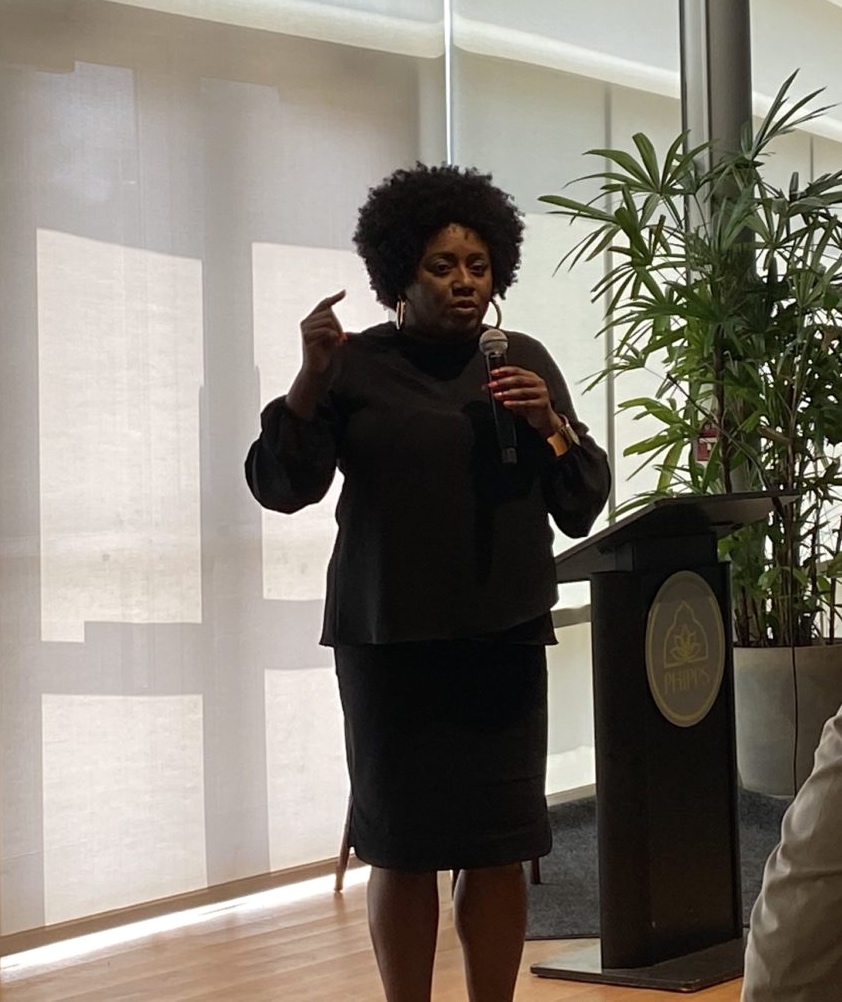What does building a responsibility-driven culture of technology innovation look like?
The Partnership to Advance Responsible Technology (PART) hosted its first-ever Responsible Technology Summit this week at the Phipps Conservatory and Botanical Gardens in the hopes of answering that question.
The summit centered on a series of expert-led discussions around the most pressing concerns regarding responsibility of tech innovation and use, and what solutions to those problems might look like. It came after the release of a comprehensive report from PART earlier this year, which marked a renewal of the organization’s participation in the local tech industry.
Discussions throughout the day focused on disinformation and technology, AI engineering for change, individual readiness and economy preparedness. But bringing it all together in a concluding keynote address was data activist Renée Cummings, who spoke of her work in the overlap of AI ethics, criminology, psychology, urbanism and technology.
An impassioned speaker and thought leader, her words provoked universal head nodding from the crowd at the end of a day of brainstorming on advancing PART’s mission. Here are three major takeaways from her address.
Increasing responsibility in tech means ensuring tech is for everyone
An early point in Cummings’ keynote address presented an argument for why responsibility regulations in tech aren’t merely needed as a way to reign in big companies and innovators. They’re also to ensure responsible development safeguards the future for everyone. She called the PART summit an historic moment for those looking to ensure the technology of the future is well thought-out ahead of and along with its development.
“What excites me about technology in particular AI would be its duality. It is as powerful as it is vulnerable,” Cummings said. “It has this extraordinary ability to enrich the human experience, to expand knowledge, to safeguard our democracy if we use it correctly, to really expand the ways in which we think about the world and see about the world.
“So when we speak about responsible technology, we’re not speaking about ways to frustrate or to increase the red tape around innovation,” she said, “we’re speaking about ways that we can do technology that is justice-informed, that is trauma-informed, that is equitable, diverse and inclusive.”
The algorithms behind innovation can no longer be black boxes
Cummings also mentioned several examples of unintended, but serious, consequences of technology innovation in recent years. One such example included a tool used by child welfare officials for Allegheny County, that a research team at Carnegie Mellon University found disproportionately flagged Black children for child neglect investigations, according to a recent report from the Associated Press.
While that example is local, there are countless other stories of algorithm-driven systems producing effects that are the result of biases within their human creators — weapons of math destruction, as author and mathematician Cathy O’Neil described them. All of this lack of transparency leads to a lack of accountability, Cummings argued.
“What we have seen is that the creators of the algorithm many times do not understand the complexity and are unable to thoroughly explain why the algorithm has done what it has done,” she said. That includes understanding how and why a system arrived at a decision, each step it took to get there and the methodology being applied along the way. “We have got to think about whether or not accountability and transparency are even a reality, given the fact that many of these algorithms are so opaque and given the fact that we still don’t understand what happens in the black box.”
Responsible development of technology is fundamentally interdisciplinary
In concluding her address, Cummings drove home the idea at the foundation of the entire conference — that people from all backgrounds and sectors and areas of expertise will need to work together to ensure the rapid innovation of technology occurs responsibly and thoughtfully. While not everyone needs to be on the same page about the technical backend of any product, service or platform, they should still be involved in the general discussion around its development, its consequences and its room for improvement.
“Inclusion really enhances the business model and ways in which we can really excite the imagination of what we are doing, because inclusive innovations speaks to the fact that we are not alienating, we are not excluding, we are not exploiting,” Cummings said. “And it’s about collaboration, it’s about that multicultural approach, that interdisciplinary approach.”







